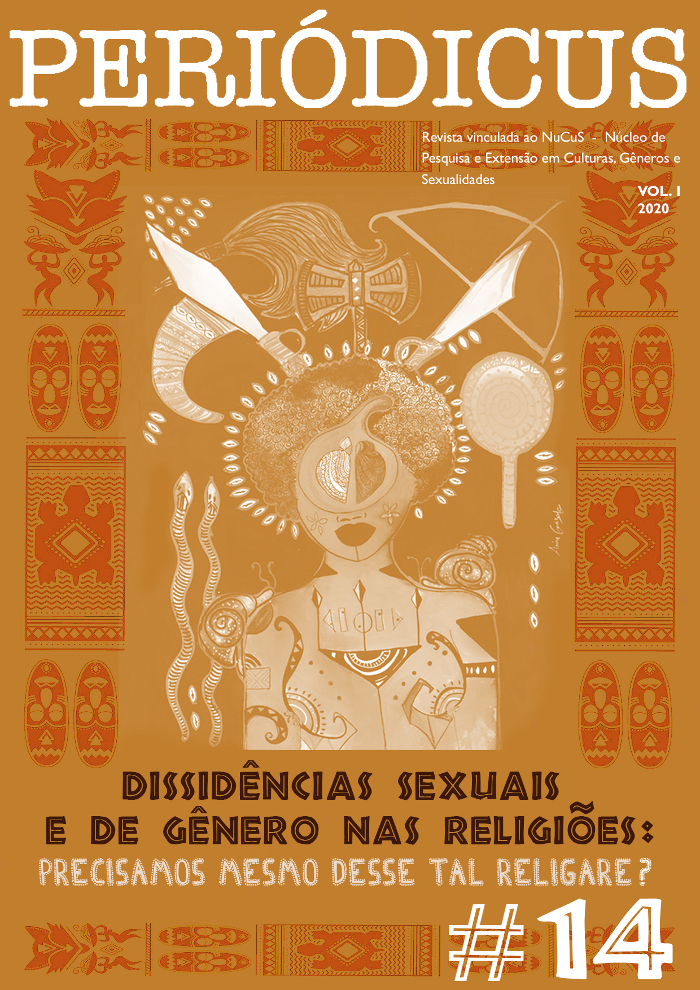Femininities and transgressions in a revolving body: a post-structuralist analysis of scientific production about Pombagira
DOI:
https://doi.org/10.9771/peri.v1i14.36523Abstract
This article results from a bibliography search conducted to analyze correlations presented at the discourse level, drawing from ethnographic studies and anthropological productions, including Pombagira, prostitution and the different forms of femininity in Umbanda. The first section of the article discusses the relation between the entity and the stereotype of the prostitute, identifications and the role that Pombagira plays in the life of women who are sex workers. The second section of the article addresses the image of the transgressive, independent woman who does not submit to men, as such image is tied to the entity, discussing how the entity confronts gender inequalities and their counter-sexual experiments, especially by means of her LGBT ‘children’. The third and last section deals with the discursive approximation between Pombagira and Exu, touching their ambiguities which blur gendered binarities. Lastly, it is considered indispensable that analyses about the entity Pombagira pay attention to countless possibilities of a duty towards minorities, thus avoiding epistemological and cisnormative suicides.Downloads
Downloads
Published
How to Cite
Issue
Section
License
Copyright (c) 2021 Daniella Chagas Mesquita, Esmael Alves de Oliveira

This work is licensed under a Creative Commons Attribution-NonCommercial 4.0 International License.
Authors who publish in this journal agree to the following terms:
Authors retain copyright and grant the journal the right of first publication, with the work simultaneously licensed under a Creative Commons Attribution Noncommercial License that allows the work to be shared with acknowledgment of authorship and initial publication in this journal, but prohibits commercial use.
Authors are authorized to enter into separate additional contracts for non-exclusive distribution of the version of the work published in this journal (e.g., publishing in an institutional repository or as a book chapter), with acknowledgment of authorship and initial publication in this journal.
Authors are permitted and encouraged to publish and distribute their work online (e.g., in institutional repositories or on their personal website) at any point before or during the editorial process, as this can generate productive changes and increase the impact and citation of the published work (see The Effect of Open Access).








